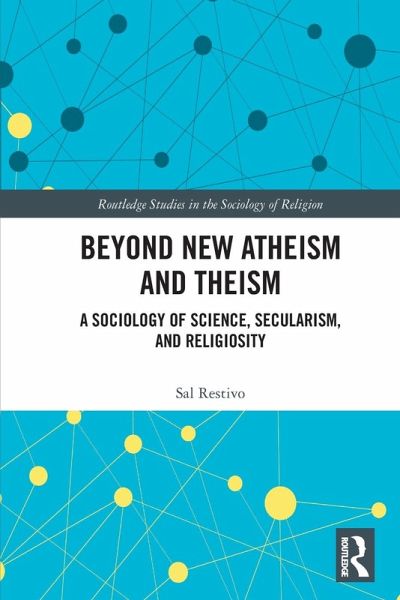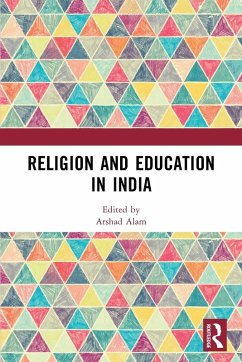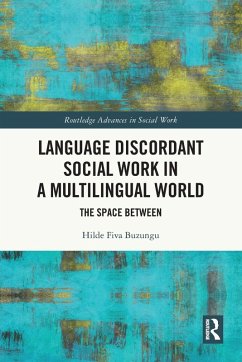Sal Restivo
Broschiertes Buch
Beyond New Atheism and Theism
A Sociology of Science, Secularism, and Religiosity
Versandkostenfrei!
Versandfertig in 1-2 Wochen
Weitere Ausgaben:

PAYBACK Punkte
28 °P sammeln!





Focusing on the debates between the New Atheists and theists, this book addresses the failings in understanding on both sides, arguing for a sociological perspective on religion, God and science as a practice, together with a critical realist approach to the nature of the real world as we experience it.
Sal Restivo is a retired sociologist/anthropologist who has held professorships and endowed chairs at universities in the United States, Canada, Europe, and China. He is a founding member and former president of the Society for Social Studies of Science, and he specializes in the sociology of science and religion. He is the editor-in-chief of Oxford's Science, Technology, and Society: An Encyclopedia (2005). His most recent books are Einstein's Brain: Genius, Culture and Social Networks (2020), Society and the Death of God (2021), Inventions in Sociology: Studies in Science and Society (2022), and The Social Brain: Sociological Foundations (2023).
Produktdetails
- Verlag: Routledge
- Seitenzahl: 202
- Erscheinungstermin: 18. Dezember 2024
- Englisch
- Abmessung: 234mm x 156mm x 11mm
- Gewicht: 316g
- ISBN-13: 9781032500942
- ISBN-10: 1032500948
- Artikelnr.: 72106366
Herstellerkennzeichnung
Libri GmbH
Europaallee 1
36244 Bad Hersfeld
gpsr@libri.de
'Restivo uses sociology to analyze and transcend both the dogmatism of theology and the naïve science-worship of today's New Atheists. Lively, sharp-edged, widely knowledgeable, and impossible to misunderstand. God is a collective representation, and cultural evolution accounts for the morals that ground everyday life. The individual is the intersection of social networks (as is science), and what both individuals and sciences do is socially real, path-dependent, and open-ended. We could call this network secularism, and it provides its own trajectory of emotional energy (call it secular faith, if you like) into the optimistic possibilities of the future.'
Randall Collins, Professor Emeritus,
Randall Collins, Professor Emeritus,
Mehr anzeigen
University of Pennsylvania, USA, and author of 'Charisma: Micro-sociology of Power and Influence'.
'From an eclectic, erudite mind - this latest work from Sal Restivo is intellectually rich, admirably interdisciplinary, and sure to be engaging for anyone interested in a rigorous journey through contemporary atheism, theism, secularism, and religion.'
Phil Zuckerman, Professor of Sociology & Secular Studies, Pitzer College, USA, and author of 'What It Means to be Moral and Society Without God'
'Restivo uses sociology to analyze and transcend both the dogmatism of theology and the naïve science-worship of today's New Atheists. Lively, sharp-edged, widely knowledgeable, and impossible to misunderstand. God is a collective representation, and cultural evolution accounts for the morals that ground everyday life. The individual is the intersection of social networks (as is science), and what both individuals and sciences do is socially real, path-dependent, and open-ended. We could call this network secularism, and it provides its own trajectory of emotional energy (call it secular faith, if you like) into the optimistic possibilities of the future.'
Randall Collins, Professor Emeritus of Sociology at the University of Pennsylvania, USA, and author of 'Charisma: Micro-sociology of Power and Influence'
'This book presents a sociological analysis of the Old Theism - New Atheism debate. It is an invitation to philosophers, logicians, mathematicians, physicists and theologians to reconsider the whole debate and accept the social as a - if not the - fundamental ingredient.'
Jean Paul Van Bendegem, Professor Emeritus of Philosophy, Vrije Universiteit Brussel, Belgium
'At an age when mortality might give others pause, sociologist and STS scholar Restivo argues brilliantly against the existence of God - of any gods. He demonstrates why atheist and theist ideas and logics are incommensurable and their explanations fruitless. Religion, finally, is the moral order "glue" of society and is real; God is real only in a symbolic sense.'
Peter Denton, Royal Military College of Canada, and author of The End of Technology
'From an eclectic, erudite mind - this latest work from Sal Restivo is intellectually rich, admirably interdisciplinary, and sure to be engaging for anyone interested in a rigorous journey through contemporary atheism, theism, secularism, and religion.'
Phil Zuckerman, Professor of Sociology & Secular Studies, Pitzer College, USA, and author of 'What It Means to be Moral and Society Without God'
'Restivo uses sociology to analyze and transcend both the dogmatism of theology and the naïve science-worship of today's New Atheists. Lively, sharp-edged, widely knowledgeable, and impossible to misunderstand. God is a collective representation, and cultural evolution accounts for the morals that ground everyday life. The individual is the intersection of social networks (as is science), and what both individuals and sciences do is socially real, path-dependent, and open-ended. We could call this network secularism, and it provides its own trajectory of emotional energy (call it secular faith, if you like) into the optimistic possibilities of the future.'
Randall Collins, Professor Emeritus of Sociology at the University of Pennsylvania, USA, and author of 'Charisma: Micro-sociology of Power and Influence'
'This book presents a sociological analysis of the Old Theism - New Atheism debate. It is an invitation to philosophers, logicians, mathematicians, physicists and theologians to reconsider the whole debate and accept the social as a - if not the - fundamental ingredient.'
Jean Paul Van Bendegem, Professor Emeritus of Philosophy, Vrije Universiteit Brussel, Belgium
'At an age when mortality might give others pause, sociologist and STS scholar Restivo argues brilliantly against the existence of God - of any gods. He demonstrates why atheist and theist ideas and logics are incommensurable and their explanations fruitless. Religion, finally, is the moral order "glue" of society and is real; God is real only in a symbolic sense.'
Peter Denton, Royal Military College of Canada, and author of The End of Technology
Schließen
Für dieses Produkt wurde noch keine Bewertung abgegeben. Wir würden uns sehr freuen, wenn du die erste Bewertung schreibst!
Eine Bewertung schreiben
Eine Bewertung schreiben
Andere Kunden interessierten sich für














